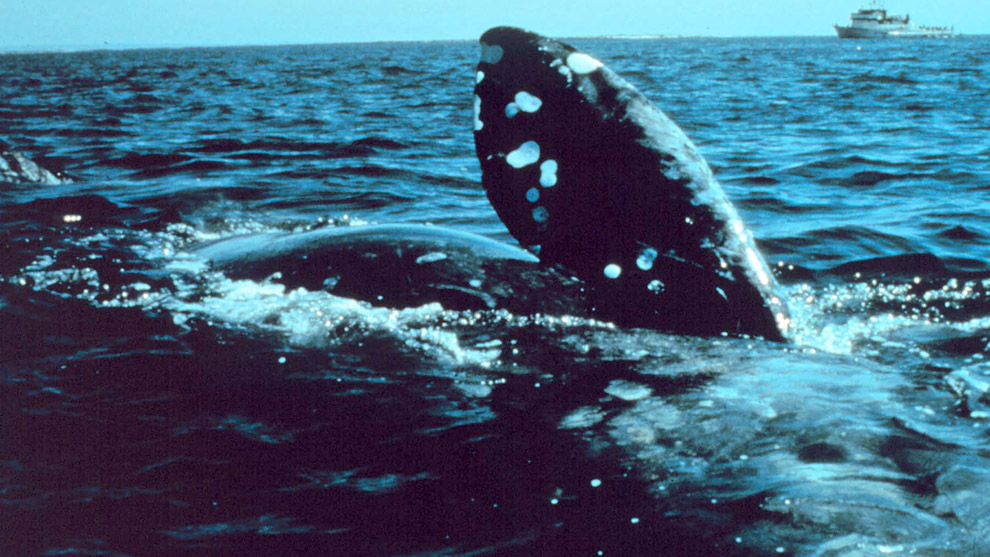Whale Safety
New fisheries regulations announced to protect right whales
Changes to snow crab fishery focus on gear

caption
A North Atlantic right whale
caption
Experts estimate there are only 450 North Atlantic right whales left.Snow crab fishermen will have to modify their ropes and buoys this upcoming fishing season after regulations were announced to help protect endangered whales.
Federal Fisheries Minister Dominic LeBlanc announced the new measures on Tuesday to reduce the number of gear entanglements involving North Atlantic right whales in the Gulf of St. Lawrence.
Right whales are an endangered species, with experts estimating there are only 450 left in the world.
“Protecting Canada’s endangered whales from further harm is a responsibility that weighs heavily on all of us,” LeBlanc said in a news release.
The new rules decrease the amount of rope left floating on the surface after crab pots are set. No more than 3.7 metres of rope can be used to attach a secondary buoy to a primary buoy. Ropes that attach primary buoys to traps will also have to be weighed down so they don’t float to the surface
Fishermen will have to colour-code their ropes to match their authorized fishing region. Other changes include numbering buoys to identify the owners of specific traps and mandatory reporting of lost gear.
The nine snow crab fishing areas in the Gulf of St. Lawrence stretch from Cape Breton to the Gaspé Peninsula in Québec. Right whales migrate to this area in the spring and summer to feed.
Jay Lugar, the program director of Marine Stewardship Council Canada, an organization that sets standards for certifying fisheries sustainable, welcomes the new measures.
“The announcement demonstrates the government’s commitment and continued efforts to address the evolving situation with right whales in Canadian waters,” he said in an email.
Twelve North Atlantic right whales died in the Gulf of St. Lawrence between June and September last year, the deadliest season on record.
The Department of Fisheries and Oceans performed necropsies on seven of these whales. A joint report by the Canadian Wildlife Health Cooperative and Marine Animal Response Society from last October confirmed vessel collisions and fishing gear entanglements were primarily to blame.
Lugar said the snow crab fishery in the Gulf is undergoing an expedited audit following the release of the report.
In August the government changed rules regarding vessel speed in the Gulf of St. Lawrence. Transport Canada now requires ships 20 metres or more to slow to a maximum of 10 knots, or about 18 km/h, when travelling in the western Gulf of St. Lawrence.
Tuesday’s announcement comes after a Nov. 9 meeting in Moncton hosted by LeBlanc. Representatives from several groups, including the fishing and marine transportation industries, non-governmental agencies, Indigenous community and scientists discussed ways to protect North Atlantic right whales.
Nova Scotia’s snow crab industry’s landings are worth nearly $112 million annually.
LeBlanc said in the release that further measures to protect right whales would be announced in the near future.
